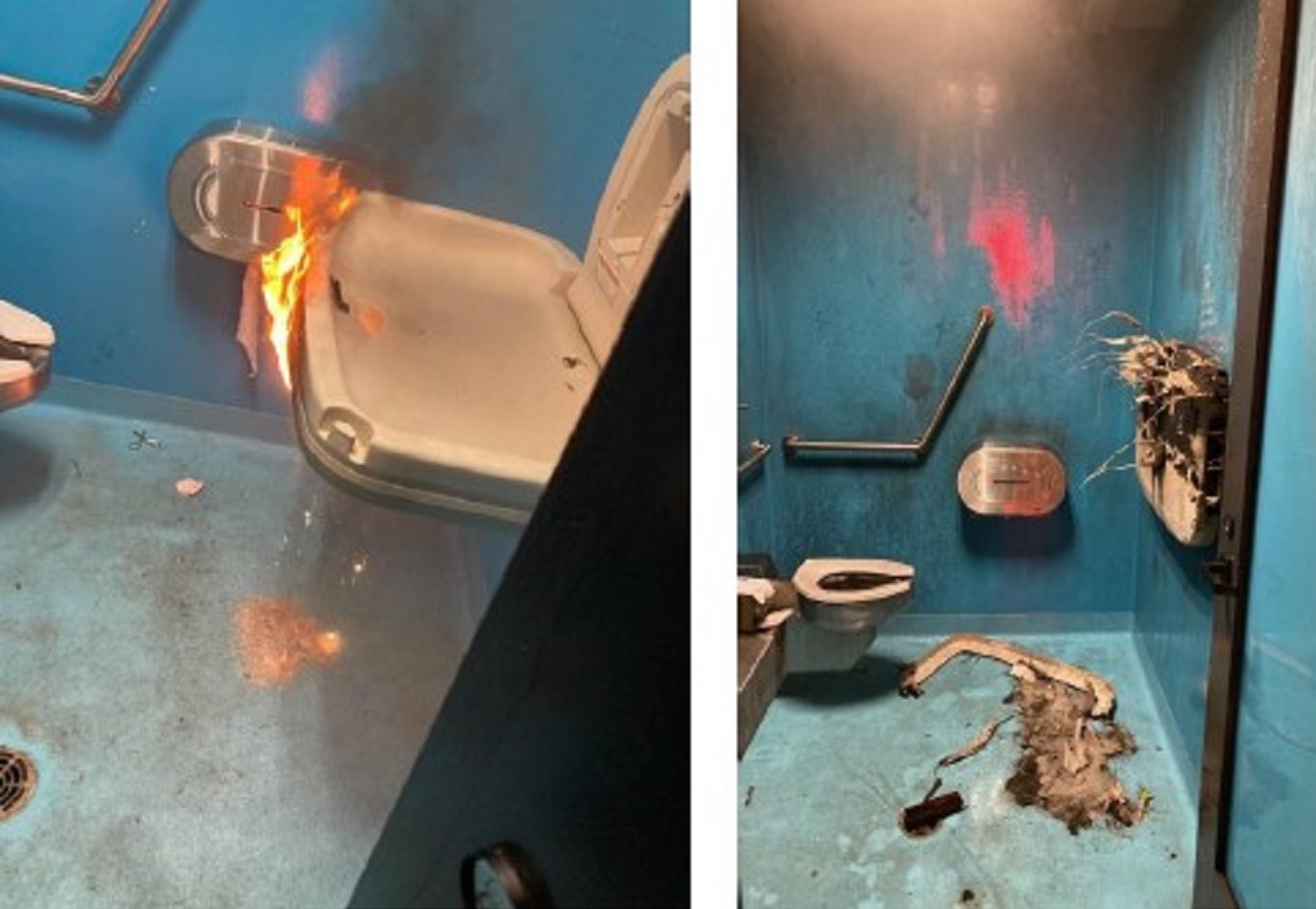Berlin is not a place where you feel. Feel too deeply here and you’ll either pack your bags or lose your mind. The city hums with a seductive aura: gritty, unflinching, addictive. Sometimes I think the devil lives here, dressed in black, DJing liberation for lost souls with no rhythm. Since I moved here during the COVID-19 pandemic, people have greeted my lack of enthusiasm for a fascist country and its marginally less fascist capital with disbelief.
Berlin is fascist — but sexy fascist. The kind where a party with a darkroom passes for liberation. The kind where, if I were attacked with a stake in public for being a shapeshifting, time-travelling trickster in the body of a dark-skinned Black trans nonbinary human, no one would intervene. When I ask why, the answer is always the same: “It’s Germany.”
Fall off your bike here and no one helps, no matter who you are. This is a country that protects the powerful or White persons. Berlin performs freedom when celebrated and becomes unmistakably German when criticized.
When I first arrived, the city’s sadness felt honest. A man drinking a Sternburg at any hour of the day was refreshing. I thought I’d found a safe place to make art, not realizing I’d entered a theatre where most perform the role of the liberated artist, with work as deep as the Instagram carousel for which it was made. One day, it hit me: I could be surrounded by artists and no one needed to be real. Perhaps that’s why club culture is the beating heart of Berlin’s scene; people escaping the dungeon of themselves on 72-hour benders that leave no room for reflection, only exhaustion and cum stains instead of sincerity.
The dangerous irony of Berlin’s “freedom” is how hollow it feels, fast hits followed by lower lows. Beneath the performance lies an inability to laugh at the absurdity of it all. Many here seek freedom, love, belonging; most find only a k-hole full of unanswerable questions and people who can’t help. I don’t blame the expats, gentrifiers, or migrants — the supposed “problem,” as Chancellor Friedrich Merz claims. I blame the devil.
I suppose the devil lives in Berlin for a few reasons:
- There’s no accountability. It never needs to take responsibility.
- There’s endless pleasure — always a drug to sniff, never a moment to feel.
- Historically, this was the center of a violent empire. The Berlin Conference of 1884–85 gathered 14 colonial powers to divide Africa among themselves, presided over by Otto von Bismarck, Germany’s first chancellor.
 Spotted on the U7 train: a DIY manifesto posing as a name tag. It survived three stops before Berliner Verkehrsbetriebe (BVG) control decided love and resistance violated transport etiquette. (photo Day Eve/Hyperallergic)
Spotted on the U7 train: a DIY manifesto posing as a name tag. It survived three stops before Berliner Verkehrsbetriebe (BVG) control decided love and resistance violated transport etiquette. (photo Day Eve/Hyperallergic)
Love in hell is endless pleasure without joy, and Berlin is the hedonistic capital serving the devil’s every whim. The devil is the coolest performative male in a room full of White leftist queers and the token BIPOCs who talk about poverty yet always have money for rent and drugs. The devil and its cronies practice nudity as artistic expression and darkrooms become the epitome of freedom. What else could we expect from Germany, whose greatest love stories are tragedies?
Shame, guilt, and grief are Berlin’s CCTV cameras. The cop inside every German ensures the rules are followed, as if rule-breaking would unleash something monstrous. Something like the “forgotten genocide” of Namibia.
Berlin, in contrast to the rest of Germany, dresses itself in color and contradiction, becoming Europe’s so-called “queertopia.” This fantasy serves Europe well, preserving its mythology as the continent of reason, liberty, and progress.
In October, I met Jamaica Kincaid at an event at the American Academy in Berlin. The razor-sharp author had been scorned for calling Condoleezza Rice a “bitch” at an event in September, a sentiment many might quietly agree with. Kincaid, now 76, the brilliant mind behind Annie John (1985) and A Small Place (1988), responded by calling herself “dishonorable” as she had not acted “respectfully” to her hosts. Humble yet unapologetic, she reminded me that freedom of speech is not a privilege for the artist — it is the job: to tell the truth, deliberately and without fear. And no matter what you have accomplished, there will always be a White body telling you that your truth is impolite.
The “city of no mirrors” isn’t just Berghain; it’s an inherited trauma, a fog of guilt where difference is marketable and rebellion is curated. Even now, as pro-Palestinian and liberationist art faces censorship, institutions hand out diversity scraps while performative artists swallow them as representation. The artist is dangerous. Propaganda has always been a fascist regime’s favorite tool, and Berlin has already slashed the budgets of cultural institutions, many of which challenge their totalitarian aims. Artists and collectives who want creative freedom are required to self-organize in the name of political freedom. In a city that is a playground for the apathetic and where the devil struts in designer black clothing, preaching diversity, I wonder who will win the lottery.
True rebellion isn’t rewarded in a country still allergic to reflection or accountability. But why pretend to be surprised? The devil doesn’t retire; it rebrands. And what do I know? I’m just an artist trying to make revolution irresistible. In a world on fire, I’m learning that many will deny the flames just to keep the mirror far away, terrified of the violence they refuse to challenge or change.
Tagged: BerlinDay Eve Komet
Day Eve Komet is a writer, poet, facilitator, and performer. Their work is devoted to birthing new worlds, new imaginings, and new ways of becoming. They are the creator of audioslut.com. More by Day Eve Komet




